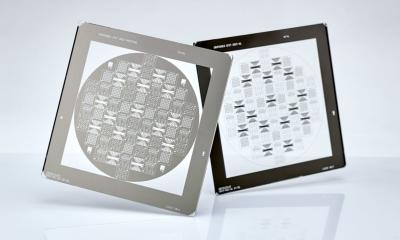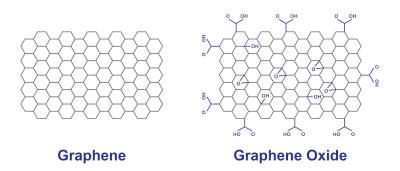Graphene -info newsletter ( August 24, 2021 )
posted on
Aug 24, 2021 10:06AM

Hydrothermal Graphite Deposit Ammenable for Commercial Graphene Applications

Cannot read this? View it online here
This is a sponsored post by Graphenea
Graphenea’s Semiconductor catalogue spans from 1x1 cm2 single layer graphene films on a variety of substrates, to fully customized graphene-based device architectures implemented on wafers up to 150mm. The unique vertical integration that Graphenea offers, that covers the graphene growth, its transfer, its device fabrication and post-processing, allows Graphenea to have full control of the manufacturing process, continuously monitoring this through quality control processes and checkpoints.

Graphenea Foundry offers three products and services, which cover all the graphene needs one may have.
Environmental Systems Corporation (ESC) and Evercloak have announced a new CAD$4.6 million (around USD$3.64 million) collaborative project to build up to pilot-scale commercial production of graphene-based membranes. The project will be funded by Next Generation Manufacturing Canada (NGen) from the Ministry of Innovation, Science, and Economic Development Canada.
"This is a very exciting time for us. This collaboration represents a crucial building block towards net-zero by the year 2030 by reducing energy processes for cleanrooms. We are very excited to work with Evercloak and NGen on this initiative," said Vern Solomon, Founder/ Innovator of ESC.
The potential toxicity of graphene and graphene oxide has been on people's minds lately. This is an area that has always received some attention, but recently there have been rumors and wild speculations about the adoption of graphene oxide and the risks involved.
Researchers have been studying the toxicity of graphene and graphene oxide for many years. While these materials have not yet been established as completely safe for use, there are quite a few research results that indicate that graphene can be relatively safe under the appropriate conditions.
Researchers at the Ningbo Institute of Materials Technology and Engineering (NIMTE) of the Chinese Academy of Sciences (CAS), led by Prof. Chen Tao, have developed a flexible and self-adaptive airflow sensor enabled by a graphene and CNTs membrane, which is mediated by the reversible microspring effect.
Airflow sensors based on the mechanical deformation mechanism have been drawing increasing attention thanks to their excellent flexibility and sensitivity. However, fabricating highly sensitive and self-adaptive airflow sensors via facile and controllable methods remains a challenge. Recently, inspired by the bats' wing membrane which shows unique airflow sensing capacity, the researchers at NIMTE prepared graphene/single-walled nanotubes (SWNTs)-Ecoflex membrane (GSEM), which can be arbitrarily transferred and subsequently adapt to diverse flat/bend and smooth/rough surface. Relying on the reversible microspring effect, the researchers developed a highly sensitive and self-adaptive GSEM-based airflow sensor.
lithium ion batteries used in extreme heat or cold can be prone to malfunctions and low performance. Purdue University engineers have developed a solution: a "thermal switch" made of compressible graphene foam, that dynamically adjusts to temperatures both inside and outside the device to maintain consistent thermal management.
“As electronic devices get smaller and more powerful, managing heat becomes a more crucial issue,” said Xiulin Ruan, professor of mechanical engineering, who studies nanoscale heat transfer and sustainable energy. “Most devices use passive thermal management, such as conduction and convection, to move excess heat. But this system isn’t tunable or adjustable, and doesn’t help at all in cold conditions.”
Haydale has filed a joint patent with Airbus which covers the intellectual property jointly generated by Haydale and Airbus under the multi-party NATEP-supported Graphene Composites Evaluated in Lightning Strike Project, or GraCELS-2.
The group said that GraCELS-2 was designed to confirm that the 'incorporation of functionalized graphene/2D fillers could produce the next iteration of composite materials with significantly improved lightning strike performance compared to existing current carbon/epoxy systems alleviating the need for copper mesh'.
Haydale has announced that, following its announcement of positive prototype testing on 3rd March 2020, its range of advanced wearable technology - integrated into garments for elite athletes - was used in Tokyo by British athletes, including top medal winning athletes.
The garments generate heat using Haydale's printed functionalized graphene ink and incorporate electronic circuitry to produce temperature regulated panels. The plan is to use them at future international competitions, and subsequently to make them available commercially to other professional sports.
OLED-Info has been the world's leading graphene industry portal since 2009. Graphene-Info is read by tens of thousands of people each month and is also active on social media - sharing news and engaging with the graphene community.
Graphene-info welcomes all of its readers to follow its accounts:
Graphene oxide (GO), a form of graphene that includes oxygen-containing groups, has been the focus of much talk and speculation lately - most of which centered around its potential use in medical contexts.

However, GO is an interesting material all on its own, with great potential for various other uses and applications. It is studied for use in areas like membranes for audio devices and water filtration, sensors, solar cells, batteries and more.